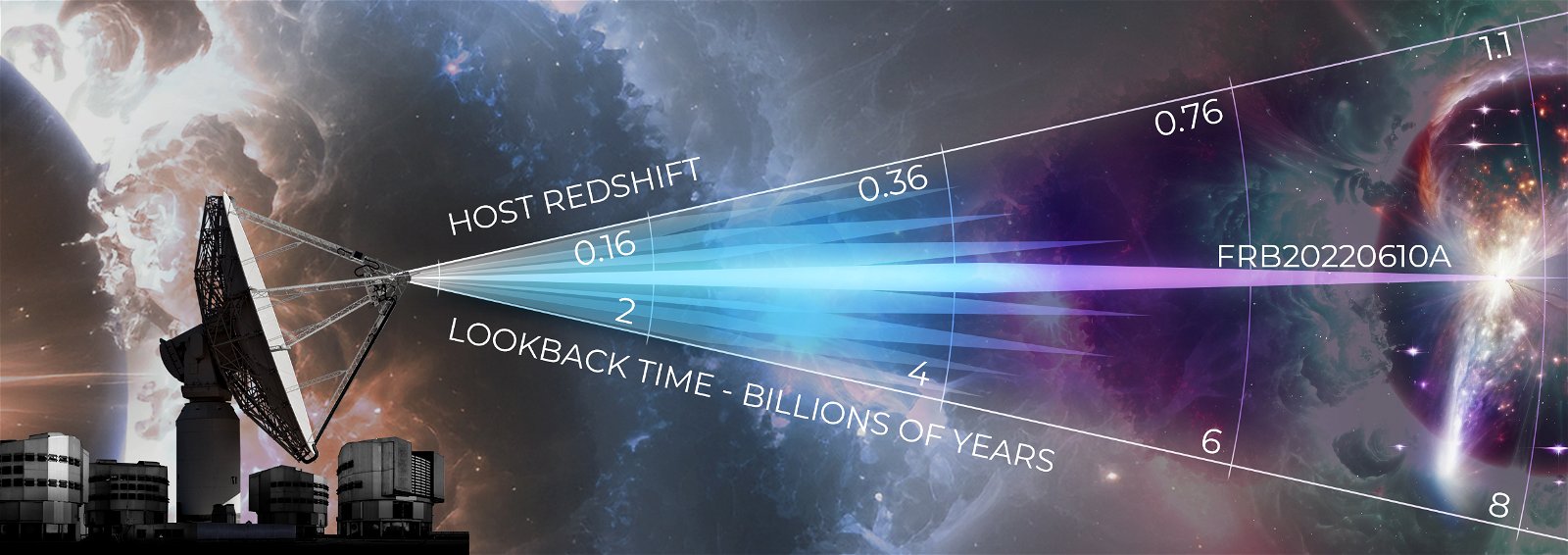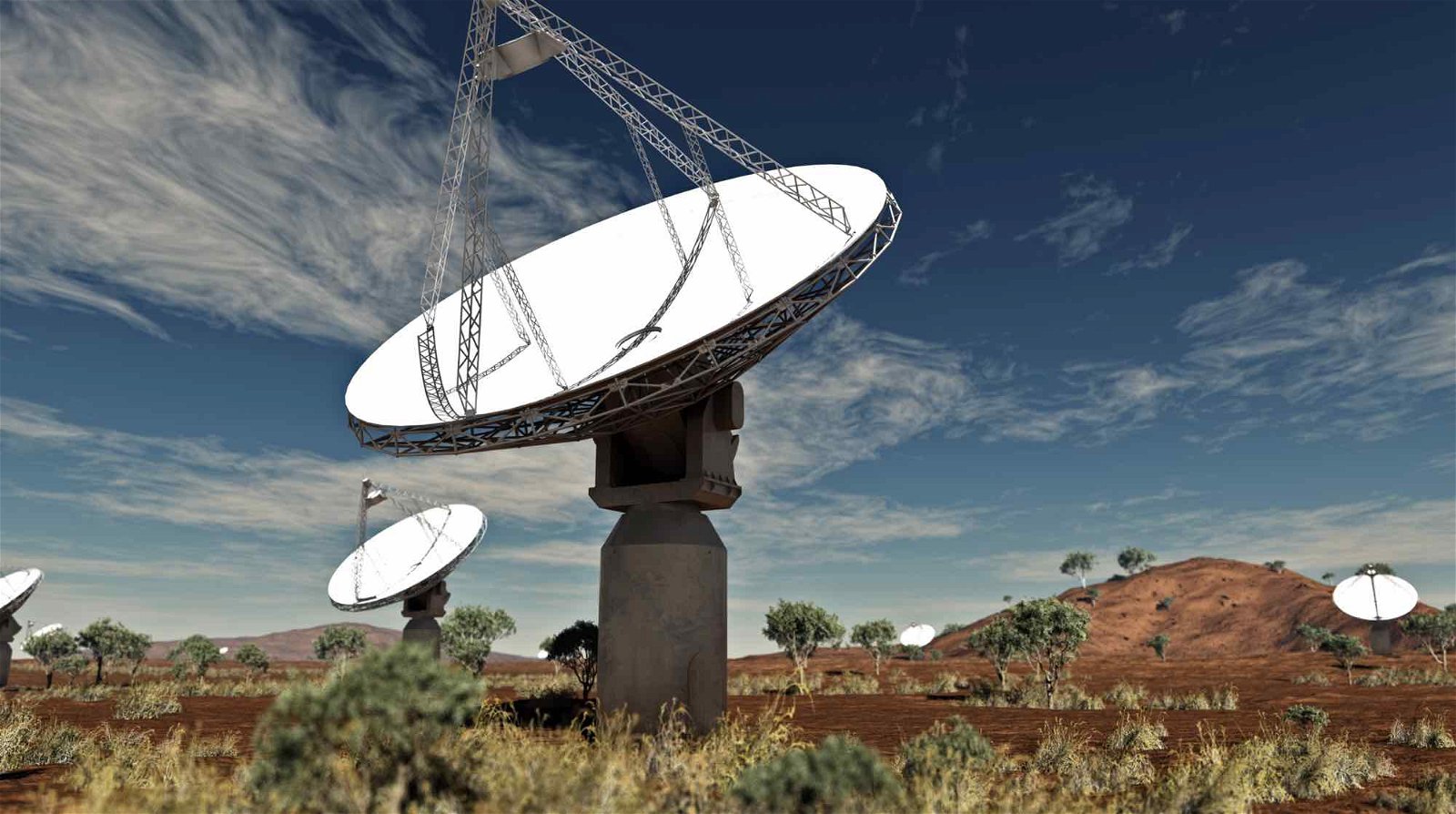An ultra-powerful blast of mysterious cosmic radio waves, often called a fast radio burst (FRB), originating from a galaxy 8 billion light years away has just been detected by CSIRO’s ASKAP radio telescope, according to new research.
Astronomers, astrophysicists, and cosmologists still disagree about what or who is causing these massive bursts of mysterious cosmic radio waves, with theories ranging from colliding galaxies and starquakes to alien communications.
This signal, however, not only traveled over 8 billion light years to reach Earth but, according to researchers, was “created in a cosmic event that released, in milliseconds, the equivalent of our Sun’s total emission over 30 years.”
8 Billion-Year-Old FRBs Represent Farthest Signal Ever Detected
In this case, the international team behind the finding says they believe the event was the collision of two ancient, distant galaxies. The resulting explosion of electromagnetic energy emitted an FRB that, even moving at light speed, took 8 billion years to cross the cosmos, including passing through the empty spaces between galaxies.
Following that long interstellar journey, researchers picked up that signal on June 10th, 2022, using the CSIRO’s ASKAP radio telescope in Wajarri Yamaji Country, region of western Australia.
“Using ASKAP’s array of dishes, we were able to determine precisely where the burst came from,” says Dr. Stuart Ryder of Macquarie University, the paper’s first author. “Then we used the European Southern Observatory (ESO) Very Large Telescope (VLT) in Chile to search for the source galaxy, finding it to be older and further away than any other FRB source found to date, and likely within a small group of merging galaxies.”


The researchers note that the distance of the FRBs’ origin is significant in two key ways. First, it would represent the most distant origin of an FRB ever detected. Second, eight billion light years is more or less at the limit of our current telescopes. So, the chances of spotting another burst of mysterious cosmic radio waves from farther away, at least in the foreseeable future, are not likely.
Origin of Mysterious Cosmic Radio Waves From Deep Space Remain Unknown, But They May Help Solve Other Mysteries
Published in the journal Science, the new study notes that their detection did not necessarily solve the mystery of the origins of FRBs, including the admittedly remote possibility that it is a signal from extraterrestrial intelligence. But they believe this new information, which is one of only 50 FRBs ever detected, can only help the cause. They also believe these powerful signals can offer up lots of data on the empty regions between galaxies simply by passing through them.
“While we still don’t know what causes these massive bursts of energy, the paper confirms that fast radio bursts are common events in the cosmos and that we will be able to use them to detect matter between galaxies and better understand the structure of the Universe,” said the paper’s co-author, Associate Professor Ryan Shannon of Swinburne University of Technology.
In fact, Shannon says that another longstanding mystery about the total amount of matter in the universe could be solved with better data on the regions between galaxies gathered from FRBs.
“If we count up the amount of normal matter in the Universe – the atoms that we are all made of – we find that more than half of what should be there today is missing,” Shannon explained. “We think that the missing matter is hiding in the space between galaxies, but it may just be so hot and diffuse that it’s impossible to see using normal techniques.”
FRBs are different, Shannon says, as they can ‘sense’ this material in between galaxies.
“Even in space that is nearly perfectly empty, they can ‘see’ all the electrons,” he explained, “and that allows us to measure how much stuff is between the galaxies.”
Christopher Plain is a Science Fiction and Fantasy novelist and Head Science Writer at The Debrief. Follow and connect with him on X, learn about his books at plainfiction.com, or email him directly at christopher@thedebrief.org.

